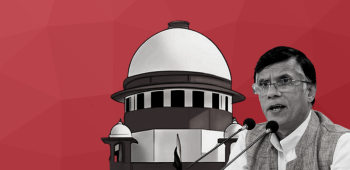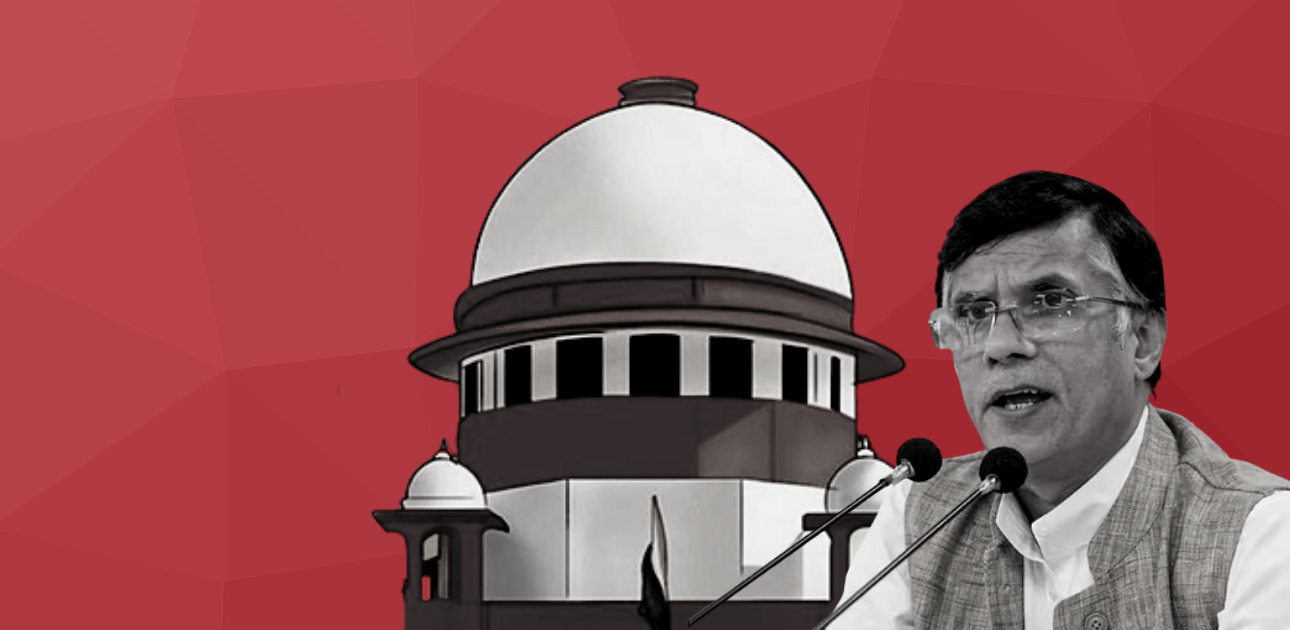
.jpg) Justice (Retd) Aloysius S. Aguiar
Justice (Retd) Aloysius S. Aguiar

Among the many freedoms enjoyed in a free society, personal freedom is the most important. The celebrated Master of the Rolls, Sir Alfred Denning, delivering the first of the Hamlyn Lecture Series explained how the courts in England approached the subject: “Whenever one of the King’s judges takes his seat, there is one application which by long tradition has priority over all others. Counsel has but to say ‘My Lord, I have an application which concerns the liberty of the subject’, and forthwith the judge will put all matters aside and hear it. It may be an application for a writ of habeas corpus, or an application for bail, but whatever form it takes, it is heard first….”
“This simple instance of priority in point of time contains within it the fundamental principle that, where there is any conflict between the freedom of an individual and any other rights or interests, then no matter how great or powerful those others may be, the freedom of the humblest citizen shall prevail over it.”
The Chief Justice of India, Justice Dr. D.Y. Chandrachud, was only following the common law procedure in setting side all urgent matters before him and constituting a special Bench to hear the plea of Counsel Manu Singhvi and granting interim bail to the Congress spokesperson Pawan Khera.
Mr. Khera’s dramatic arrest by the Assam police at the IGI Airport in Delhi from the Raipur-bound flight, which was on the tarmac getting ready for takeoff, could be applauded for its ingenuity if it were, but, not so unabashedly shameful. Mr. Khera was made to deplane by the Delhi police personnel and to accompany them to the IGI Airport terminal building where the Assam police were waiting to place him under arrest. It is alleged that ‘due process’ was not followed. Mr. Khera was on his way to Raipur to attend the plenary session of his party.
Whether the FIR on the basis of which the arrest was made could stand the scrutiny of the Courts as constituting the offences mentioned therein, is another matter altogether. Whether the ‘offensive’ statement made by Mr. Khera against the Prime Minister of India was due to a deliberate ‘slip of tongue’, or an inadvertent one, would not need a second guess. However, Mr Khera has unconditionally apologized for the derogatory remark after the Supreme Court expressed its displeasure.
But the Additional Solicitor General’s opposition to the bail application is intriguing. It is not on merits but on the procedural aspect requiring the bail application being made before the Trial Court. No doubt it is the Trial Court that will have to decide the case and determine whether the offensive remarks of Mr. Khera amount to offences under the sections of the Indian Penal Code cited in the FIR. Clearly, the thrust of the Additional Solicitor General’s argument was to make sure that Mr. Khera did not get bail and would languish in jail indefinitely -- which ‘lower court’ would dare grant bail to one charged with having committed an offence against the most powerful in the land? Undoubtedly, the procedure canvassed by the police and prosecuting agency was meant to be the punishment for someone who had the temerity to make disparaging remarks about the Prime Minister.
The CJI cannot be seen as setting the bar higher; but his timely intervention has clearly redeemed the failing image of the Supreme Court as a bulwark against attacks on the fundamental freedoms by arbitrary arrests and unlawful detention of persons which seem to have become common place; more so in the recent past.
Personal freedom is protected under Article 21 of the Constitution which reads: “No person shall be deprived of his life or personal liberty except according to procedure established by law”. The procedure has to be fair and reasonable and will encompass the principles of natural justice. Article 22 of the Constitution provides for the safeguards to be provided in case of arrest of a person who has to be informed of the grounds of arrest at the earliest and to be produced before the nearest Magistrate within 24 hours of his arrest. These rights are available not only to citizens, but also to all within India.
Lord Denning in his Hamlyn lecture has succinctly summed up the position: “What matters in England is that each man should be free to develop his own personality to the full; and the only duties which should restrict this freedom are those which are necessary to enable everyone else to do the same.”
Lord Denning further states: “Every society must have the means to protect itself from marauders. It must have powers to arrest, to search, and to imprison those who break the laws. So long as those powers are properly exercised, they are themselves the safeguards of freedom. But powers may be abused, and, if those powers are abused, there is no tyranny like them. It leads to a state of affairs where the police may arrest any man and throw him into prison without cause assigned. It leads to the search of his home and belongings on the slightest pretext – or on none. It leads to the hated gestapo and the police state. It leads to extorted confessions and to trials which are a mockery of justice. The moral of it all is that a true balance must be kept between personal freedom on the one hand and social security on the other.”
In the recent past we have been witnessing a marked increase in the misuse of the procedural law of arrest which stipulates ‘bail’ as the rule; and ‘jail’ the exception. Social and human rights activists, journalists and even humourists are branded anti-social and terrorists and thrown into prison without any credible evidence and kept incarcerated for years; when their only fault has been exposing the misdeeds of those in power or lampooning the high and mighty. These innocuous ‘offences’ are tagged on to serious charges under draconian laws like the UAPA, PMLA, etc. where the burden is on the accused persons to prove their innocence, something they cannot do until their cases are brought to trial; and the prosecuting agencies, for obvious reasons, are in no hurry to do so.
The case of Fr. Stan Swamy who died while in judicial custody charged with committing offences against the security of the State on the basis of unsubstantiated evidence is a serious indictment of our justice delivery system. By his untimely death, Fr. Swamy has been deprived the opportunity of proving his innocence and clearing his fair name; while relieving the prosecuting agencies from the burden of proving his guilt on the basis of credible evidence.
Do we see a parallel in the likely happenings described by Lord Denning in the passage quoted above and the happenings in our country where the powers of arrest are being frequently abused; and do we see the ‘Rule of law’ being replaced by the ‘tyranny of law’ and our beloved country becoming a police State?
On the other hand, does the deafening silence on the part of the powers-that-be, which includes the police, the prosecuting agencies and even the judiciary, in not taking the required steps to apprehend and punish the cow vigilantes running amok committing egregious acts of lynching persons suspected of dealing in beef; and calls for genocide from the sants and sadhus at dharam sansads, raise the spectre of an emerging fascist state?
(The writer is former Judge, Bombay High Court)